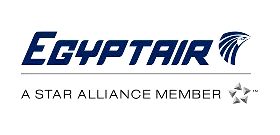 Nigeria’s Aviation Sector Navigates Turbulence: A Deep Dive for African Travel Agents
Nigeria’s Aviation Sector Navigates Turbulence: A Deep Dive for African Travel Agents
Nigeria’s aviation sector faced headwinds in 2024, with a slight dip in overall passenger traffic and a significant number of baggage handling issues. While these challenges present hurdles, they also underscore opportunities for African travel agents to provide enhanced services and support to their clients navigating Nigeria’s complex travel landscape.
Total passenger traffic through Nigeria’s airports reached 15,655,273 in 2024, a marginal decrease from the previous year’s 15.8 million. This dip contrasts with the robust growth projected by the Nigeria Civil Aviation Authority (NCAA), which anticipates a surge to 25.73 million passengers by 2029. For travel agents, this presents a crucial insight: managing client expectations and offering alternative travel solutions within Nigeria will be key to navigating this period of flux.
A significant concern for travelers in 2024 was the high number of missing or delayed baggage incidents. A staggering 47,923 cases were reported across both local and international airlines. While the majority of these bags were eventually recovered, the sheer volume of incidents highlights a critical area for improvement within Nigeria’s aviation infrastructure. Travel agents can leverage this information to educate their clients about baggage handling challenges and recommend strategies to mitigate potential disruptions, such as travel insurance and carry-on essentials.
A closer look at the data reveals a stark contrast between international and domestic carriers. International airlines accounted for the lion’s share of baggage handling issues, with 47,493 reported incidents among 26 out of 30 airlines. Domestic carriers fared comparatively better, with only 430 incidents reported among 10 out of 15 airlines. This disparity underscores the importance for travel agents to carefully consider airline choices when planning itineraries for their clients, particularly those traveling internationally.
The data visualization below provides a clear picture of the baggage mishandling rates among international airlines. Air France, KLM, and Egypt Air topped the list with the highest rates of missing or delayed baggage per 1,000 passengers. This information empowers travel agents to make informed recommendations and guide their clients towards airlines with stronger baggage handling performance.
On the domestic front, Air Peace emerged as the leading carrier in terms of passenger volume, transporting over 3 million passengers in 2024. This dominance presents a significant opportunity for travel agents to partner with Air Peace and leverage its extensive network to offer their clients convenient and reliable travel options within Nigeria.
The second visualization below highlights the market share distribution among domestic airlines. Air Peace holds a commanding lead, followed by Arik Air and Ibom Air. This market share analysis provides valuable insights for travel agents seeking to understand the competitive landscape and identify potential airline partners.
While Nigeria’s aviation sector faces challenges, the projected growth in passenger traffic by 2029 presents a significant opportunity for the industry. By understanding the current trends and challenges, African travel agents can position themselves to provide exceptional service and support to their clients, navigating the complexities of Nigeria’s aviation landscape and capitalizing on the future growth potential of this dynamic market.
